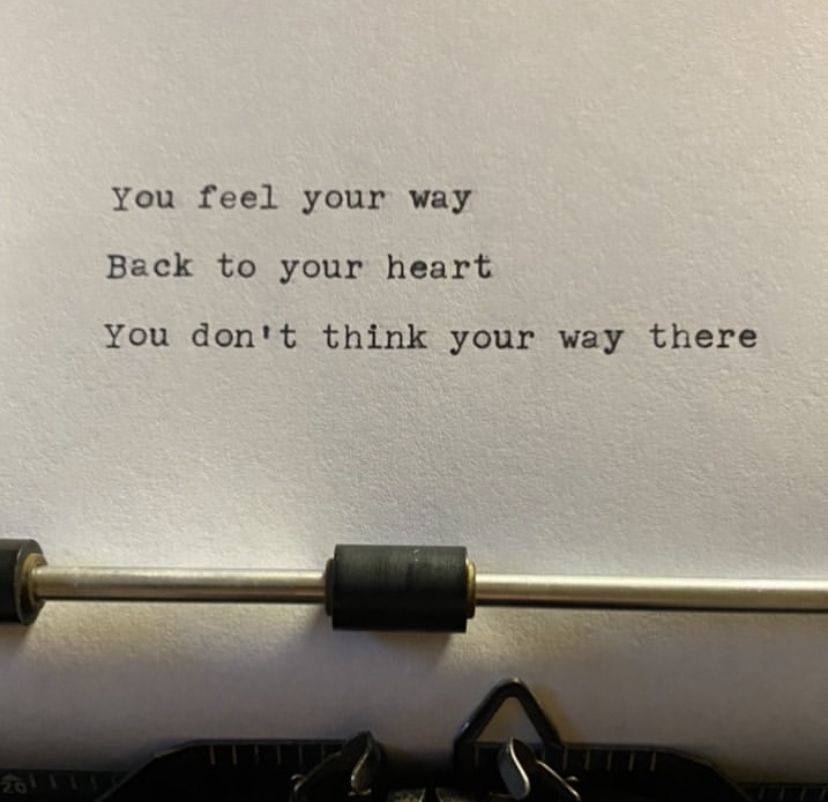
I have a gift.
Even to print those four words as the opening statement seems a little audacious, maybe even haughty. They have been difficult to own. But it’s apparent I need to press toward this awkwardness and pursue the meaning behind the discovery.
To say one has a gift is to imply being in possession of something special. And the thought of being special can get beaten out at an early age. Anyone who verbalizes this outloud is subject to ridicule. So my reticence makes sense to me out of experience.
I consider myself a very average person from a very average heritage and a very average upbringing. I was not a very good student, ever. Throughout grade school, high school and college, I made mostly C’s. This performance was considered on the report card as average.
I don’t aspire to fame or fortune. I don’t seek to be popular. The accumulation of money never seduced me. I wouldn’t be surprised if I stay in my average house the remainder of my days. I like its quiet beauty that I have crafted within its four walls in the thirty years of living there.
It’s in this average setting that I hope to nurture my distinct gift, and this will become the focus of my writing this winter.
The word clarity has stuck in my mind for the last five years, ever since I began to move through the most difficult season of my life. It was so hard, I contemplated calling it quits. The pain of failure, loss and disappointment was becoming too much to bear. The thought process of suicidal ideation made sense to my depressed mind.
I know this last paragraph is hard for some to consider me being in such a dark place. I look back on it with deep sadness, but I also made a commitment to myself to never hide or gloss over it, knowing someone who is feeling like I did might find a way out of that dark fog and into a more clear place of light.
Into a place of clarity.
Clearness. Transparent. Coherent. Intelligible. These are all synonyms of clarity.
When there is no clarity, misunderstanding will run rampant. In situations or circumstances where there is no understanding, everything can seem fuzzy or cloudy. This opacity limits movement and can eventually bring any hope for progress to a standstill.
I’ve had poor eyesight my whole life. I started wearing corrective lenses in third grade, and they were fitted with standard black, General-issue, birth-control frames, which is even more devastating to a nine year old than having bad eyesight. As I got older and my vision continued to decline, the lenses got thicker and thicker, which is when the reference to “coke bottle glasses” were applied.
Even though I hated wearing them, they worked as designed. I could go from 20/200 through my naked eye to at best 20/30 with correction. The ability to see took precedence over how I felt about how they looked on my face.
This morning, as with every morning, the first thing I did upon waking up was to reach for my glasses. I can wander to the bathroom without them, but sliding them on my nose and ears makes mobility much easier and safer. I’m less likely to stub my toe or trip over Hank’s ball because I can see something in the way.
This imagery helps me understand my gift and what I need to do to nurture and develop it.
There are gifts I wish for, but don’t have. I wish I was a gifted musician but my fingers don’t know where to go on the fretboard. I wish I could draw or paint, but my pen and brush strokes end up being clunky on the page and canvas. I dabble in woodworking, but I’m not a gifted craftsman like the ones whose work I admire.
In all this, I can’t focus on what I’m not. I have to pay attention to who I am.
I have a gift of encountering and befriending emotion. I can sit with and hold feelings that can seem daunting and frightening to others. I feel emotion deeply and have done so since I was very young. So how do I see this as a gift?
To be frank, at first I didn’t. This was due in large part to not having an elder or caregiver that saw this as a good thing. My sensitivity and depth was misunderstood. For that matter, I was taught that emotions were suspect, never to be trusted, because they would always lead to the wrong conclusion. I was taught that the mind was in charge and feelings were to always take a back seat, or be hooked up to the rear of the train like a caboose.
In 2020, as I began my intentional work of recovery from grief and loss, I was given a book by a friend titled The Road Back to You. She thought I might find it helpful and so I gave it a shot. I came to the chapter that seemed to make the most sense. Here’s how a person with deep emotion was described
“…[they] have a considerable emotional range, and they manage it by not speaking or acting on every feeling they have.”
The very first sentence of the chapter in a much trusted book on self-discovery of those who have a deep emotional life was negative. This was congruent with how I had been led to believe about my giftedness my entire life. This didn’t feel right. And I knew I needed a better path.
I jettisoned the book and began to write my own thoughts about the subject. Anyone who has followed me for a while has probably noticed a shift in how I write. I tried to be more courageous with my emotion and offer my experience to be witnessed. It led to a new focus in my writing called Use Fewer Words. I began to write as honestly as I could, as briefly as I could, and as clearly as I could. If I didn’t feel it, I didn’t post it. I wasn’t going to waste my time presenting theoretical concepts that I had never worked through. Nor was I going to waste your time with matters that didn’t come from a deep well inside me.
It’s my desire to help others discover new, emotional clarity. I might even title this series, Learning to Feel More Clearly.
As I have done the inner work of discovery and recovery, I see my life differently. I see my emotions differently. And much like my eyeglasses aid my vision, I hope my writing will add a lens of clarity to the beautiful range of emotion we have stored up inside our hearts.
Holding emotion is my gift. And gifts are meant to be given away. I don’t expect everyone to feel like I do, or express their feelings and experiences like I do. If I did, it would cease to be a gift.
Thanks for reading.

How wonderful to know your gift and USE it. Thanks, Kevin.